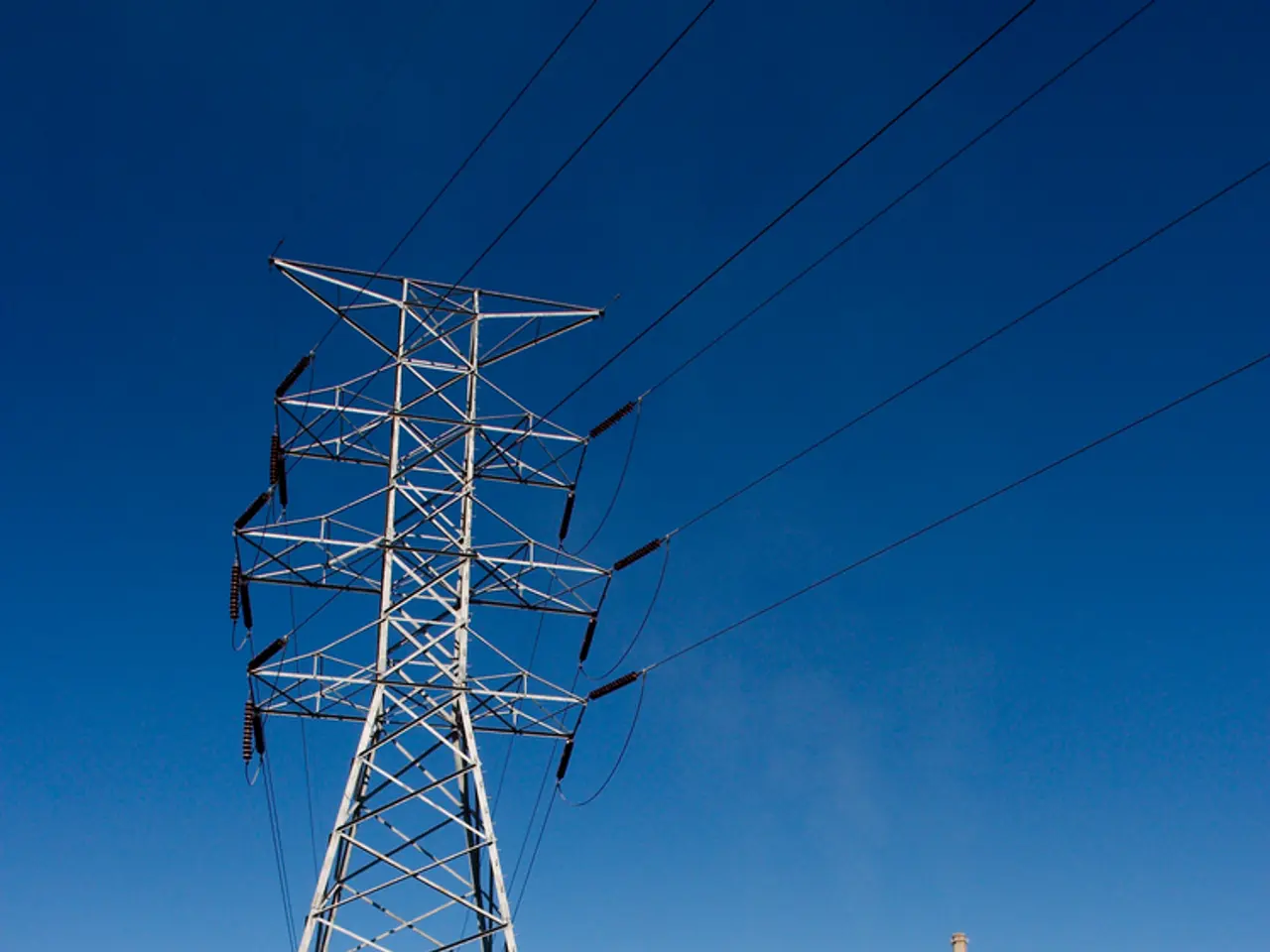Title: Germany's Eye-Watering Electricity Prices: A Deep Dive
Germany ranks fifth globally for highest electricity costs
Hey there! Let's take a closer look at why households in Germany face one of the highest electricity costs worldwide. This juicy tidbit comes from a joint analysis by Verivox and Global Petrol Prices, as reported by Der Spiegel.
In Q1 of 2025, the average electricity price in Germany was a hefty 38 cents per kilowatt hour (kWh), just shy of Bermuda, Denmark, Ireland, and Belgium which were even pricier. However, it's important to note that Germany was at the top of the list four years ago. Yet, it continues to be a high-price country, with the average electricity cost less than half the global average of 15 cents per kWh.
When comparing prices without taking purchasing power into account, Germany ranks 22nd out of 143 countries. The high prices are primarily attributed to network charges, taxes, and levies by Verivox.
The federal government has vowed to make electricity "permanently at least five cents cheaper per kWh" by reducing electricity taxes and levies, capping network charges, and potentially through a change in electricity grid expansion. This change could see them opt for overhead cables instead of earth cables, potentially saving billions.
Despite these higher prices, many households can still save some dough by switching from expensive basic supply to cheaper tariffs, with offers starting as low as 26 cents per kWh.
Now for the nitty-gritty: Germany's high electricity prices are mainly due to several structural and policy-related factors. These include:
- Over half of the electricity price consists of taxes and levies, which have tripled since 2000. A significant portion of these levies goes towards financing renewable energy and are augmented by value-added tax and other taxes.
- Grid charges, which cover infrastructure costs, account for nearly a quarter of the electricity price.
- Germany's energy import dependency and fossil fuel market volatility expose its electricity prices to international market fluctuations and geopolitical tensions.
- The transition to renewable energy, while commendable, comes with costs that are partly passed to consumers through levies and surcharges.
On the brighter side, Germany is working on adjusting taxes and levies, increasing renewable energy capacity, and improving grid infrastructure to reduce costs and stabilize prices over time.
Hope this sheds some light on the topic! If you're interested in learning more about the Energy Transition Index, where Germany ranks among the top 10, don't hesitate to ask!
References: ntv.de, lme.
- Electricity price
- Electricity supply
- Energy policy
In the light of Germany's high electricity prices, the federal government is considering adjusting taxes and levies as part of its community policy, aiming to reduce electricity prices permanently. To minimize costs, the government plans to explore potential changes in electricity grid expansion, such as using overhead cables instead of earth cables.
Moreover, the country's vocational training programs can play a crucial role in the future energy sector by fostering a skilled workforce that can contribute to the growth of the renewable energy industry, ultimately driving down energy costs for businesses and households.






